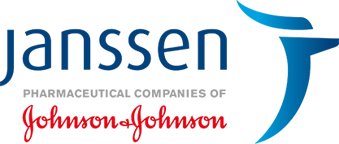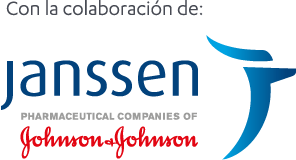Le informamos que el titular de este sitio web es el CONSORCIO CENTRO DE INVESTIGACIÓN BIOMÉDICA EN RED, M.P. cuyos datos identificativos son los siguientes:
Domicilio: Calle Monforte de Lemos, 3-5; Pabellón 11; Planta baja, 28029 Madrid
CIF: G85296226
Dirección de correo electrónico: [email protected]
Condiciones generales de uso del sitio web
CONSORCIO CENTRO DE INVESTIGACIÓN BIOMÉDICA EN RED, M.P. (en adelante CIBER) pone a disposición de los usuarios de Internet el presente sitio web de manera gratuita.
El acceso al presente sitio web implica la aceptación de las presentes Condiciones, que podrán ser modificadas o sustituidas por CIBER mediante la publicación de dichas modificaciones en el sitio web. En todo caso las nuevas Condiciones serán previamente conocidas por los usuarios antes de volver a entrar en su sitio web.
El usuario se compromete a utilizar el sitio web y sus servicios y contenidos sin infringir la legislación vigente, la buena fe y el orden público.
Se autoriza la visualización, impresión y descarga parcial del contenido del sitio web, sólo y exclusivamente si concurren las siguientes condiciones:
- Que sea compatible con los fines del sitio web, sin que de cualquier forma se puede dañar, inutilizar, sobrecargar o deteriorarla.
- Que se realice con el exclusivo ánimo de obtener la información contenida para uso profesional. Se prohíbe expresamente su utilización con fines comerciales o para su distribución, comunicación pública, transformación o descompilación.
- Que ninguno de los contenidos relacionados en el sitio web sean modificados de manera alguna.
- Que ningún gráfico, icono o imagen disponible en el sitio web sea utilizado, copiado o distribuido separadamente del resto de imágenes que lo acompañan.
Limitación de la responsabilidad
CIBER no garantiza la inexistencia de interrupciones o errores en el acceso al sitio web o a su contenido, ni que ésta se encuentre actualizada. CIBER llevará a cabo, siempre que no concurran causas que lo hagan imposible o de difícil ejecución, y tan pronto tenga noticia de los errores, desconexiones o falta de actualización en los contenidos, todas a aquellas labores tendentes a subsanar los errores, restablecer la comunicación y actualizar los contenidos.
Tanto el acceso al sitio web como el uso indebido que pueda efectuarse de la información contenida en la misma es de la exclusiva responsabilidad de quien lo realiza. CIBER no responderá de ninguna consecuencia, daño o perjuicio que pudieran derivarse de dicho acceso o uso.
CIBER no se hace responsable de los errores de seguridad que se puedan producir ni de los daños que puedan causarse al sistema informático del usuario (hardware y software), o a los ficheros o documentos almacenados en el mismo, como consecuencia de:
- La presencia de un virus en el ordenador del usuario que sea utilizado para la conexión a los servicios y contenidos del sitio web.
- Un mal funcionamiento del navegador;
- Del uso de versiones no actualizadas del mismo
Enlaces
CIBER no se hace responsable en su caso, del contenido de otros sitios web vinculados o accesibles desde este sitio web a través de enlaces. La finalidad de estos enlaces es impulsar el acceso a otras fuentes de información en Internet.
En el caso de que cualquier usuario, cliente o un tercero, considerara que el contenido o los servicios prestados por las páginas enlazadas son ilícitos o lesionan bienes o derechos del propio usuario, de un cliente o de un tercero susceptibles de indemnización, y, en particular, los que lesionen los principios que se enumeran a continuación:
- La salvaguarda del orden público, la investigación penal, la seguridad pública y la defensa nacional.
- La protección de la salud pública o de las personas físicas o jurídicas que tengan la condición de consumidores y usuarios, incluso cuando actúen como inversores.
- El respeto a la dignidad de la persona y el principio de no discriminación por motivos de raza, sexo, religión, opinión, nacionalidad, discapacidad o cualquier otra circunstancia personal o social.
- La protección de la juventud y la infancia.
- La salvaguarda de los Derechos de Propiedad Intelectual.
Usted podrá ponerlo en conocimiento de CIBER, no obstante, la recepción por esta de dicha comunicación no supondrá conocimiento a los efectos de la responsabilidad prevista en el artículo 17 de la LSSICE.
Propiedad intelectual
Los contenidos, documentación, imágenes, gráficos, logos y diseños que forman este sitio web (en adelante elementos corporativos) son propiedad de CIBER y se encuentran debidamente protegidos de conformidad con la Ley Española e Internacional sobre Propiedad Intelectual, por lo que queda expresamente prohibida su reproducción o uso, en cualquiera de sus formas, sin la previa y expresa autorización de CIBER.
El acceso a esta página web no otorga a los usuarios ningún derecho, ni titularidad sobre los derechos de propiedad intelectual de los elementos corporativos aparte de los usos permitidos en las condiciones generales.
Legislación
CIBER y el usuario, se someten a la jurisdicción de los juzgados y tribunales de Madrid para cualquier controversia o conflicto que eventualmente pueda derivarse de la interpretación de las presentes Condiciones así como del acceso o uso del presente sitio web.







